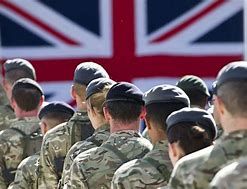
Transitioning from military to civilian life can be challenging for many veterans. While they have served their country with honour and bravery, the aftermath of their service can sometimes lead to a silent battle with mental health issues. One of the most pressing concerns is the rate of suicide among veterans in the UK. This blog aims to shed light on this critical issue, backed by evidence-based data, and offer insights into the reasons, signs, and measures to help veterans in crisis.
Recent studies have shown that the overall suicide rate among UK veterans is similar to that of the general population. However, certain groups within the veteran community are at a higher risk. For instance, veterans under the age of 25 are two to four times more likely to die by suicide compared to their civilian counterparts. In 2021, out of 5,175 suicides in England and Wales, 253 were veterans, with 93.7% being male. More British service personnel have killed themselves since 1984 than have died in combat. The percentage of British Army service personnel who have been medically discharged for mental and behavioural disorders has increased by 318% in a decade, with tri-service discharges (Royal Navy, Army and Royal Air Force) for mental health concerns collectively also rising by 245%.
Reasons Behind the Crisis
The reasons behind the high suicide rates among veterans are multifaceted and complex. Some of the key factors include:
1. Mental Health Disorders: Conditions such as Post-Traumatic Stress Disorder (PTSD), depression, adjustment disorders and anxiety are prevalent among veterans. The trauma experienced during service, especially in combat, can have long-lasting effects on mental health.
2. Isolation and Loneliness: The transition to civilian life can be isolating. Veterans often miss the camaraderie and support system they had in the military. They often have to relearn social norms and social accepted communication styles.
3. Difficulty in Reintegration: Adjusting to civilian life, finding employment, and reconnecting with family and friends can be challenging.
4. Stigma: There is often a stigma associated with seeking help for mental health issues, particularly within the military culture that values self-reliance.
Recognising the signs of a mental health crisis is crucial in preventing suicide. Some common indicators include:
* Expressing feelings of hopelessness or having no reason to live.
* Withdrawal from friends, family, and activities.
* Giving away possessions or making final arrangements.
* Increased use of alcohol or drugs.
* Overwhelming sadness or emotional numbness, or even sudden vocalising acceptance and happiness when previously sad.
There are several measures that can be taken to support veterans in a mental health crisis:
1. Access to Mental Health Services: Ensuring veterans have access to specialised mental health services is vital. Programs like Op COURAGE in England and Veterans NHS Wales provide tailored support for veterans.
2. Peer Support: Encouraging veterans to connect with peer support groups can help reduce feelings of isolation and provide a sense of community.
3. Education and Awareness: Raising awareness about the signs of mental health issues and reducing the stigma associated with seeking help can encourage more veterans to reach out for support.
4. Crisis Intervention: Providing immediate support through crisis helplines and emergency services can be lifesaving. Organisations like Combat Stress, walking with the wounded and Help for Heroes offer critical support for veterans in distress.
The issue of veteran suicide is a complex and deeply concerning one. By understanding the statistics, recognising the reasons and signs, and implementing effective measures, we can make a significant difference in the lives of those who have served our country. It is our collective responsibility to ensure that veterans receive the support and care they deserve, helping them navigate the challenges of civilian life and safeguarding their mental health.
If you or someone you know is struggling, please reach out to the available support services. Together, we can make a difference.
Mind support line – Dial 0300 102 1234
Combat Stress – Dial 0900 138 1619
Sapper support – Dial 0800 040 7873
Samaritans – Dial 116 123
Shout – Text 85258
NHS – Dial 111 option 2

We use cookies to enable essential functionality on our website, and analyze website traffic. By clicking Accept you consent to our use of cookies. Read about how we use cookies.